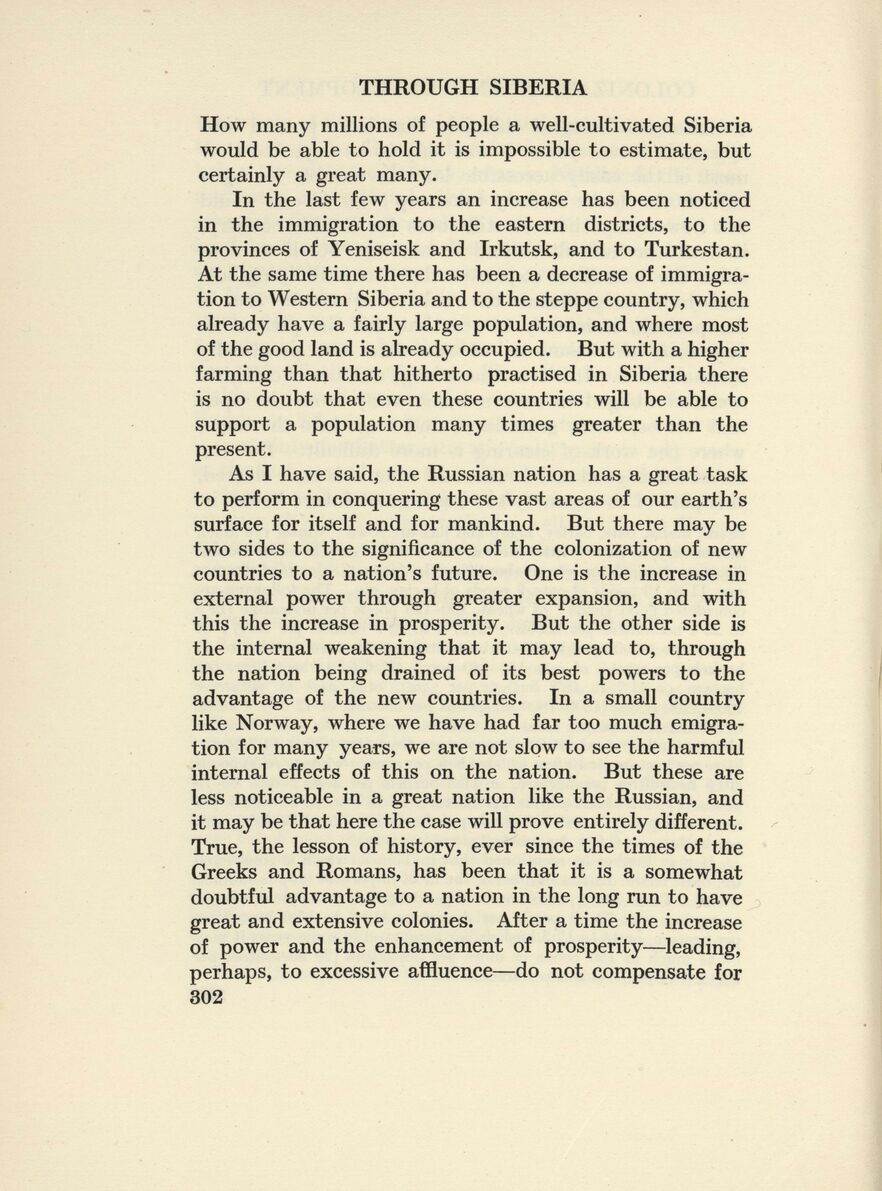
Full resolution (JPEG) - On this page / på denna sida - XIII. The colonization and development of Siberia

<< prev. page << föreg. sida << >> nästa sida >> next page >>
Below is the raw OCR text
from the above scanned image.
Do you see an error? Proofread the page now!
Här nedan syns maskintolkade texten från faksimilbilden ovan.
Ser du något fel? Korrekturläs sidan nu!
This page has never been proofread. / Denna sida har aldrig korrekturlästs.
THROUGH SIBERIA
How many millions of people a well-cultivated Siberia
would be able to hold it is impossible to estimate, but
certainly a great many.
In the last few years an increase has been noticed
in the immigration to the eastern districts, to the
provinces of Yeniseisk and Irkutsk, and to Turkestan.
At the same time there has been a decrease of immigra
tion to Western Siberia and to the steppe country, which
already have a fairly large population, and where most
of the good land is already occupied. But with a higher
farming than that hitherto practised in Siberia there
is no doubt that even these countries will be able to
support a population many times greater than the
present.
As I have said, the Russian nation has a great task
to perform in conquering these vast areas of our earth’s
surface for itself and for mankind. But there may be
two sides to the significance of the colonization of new
countries to a nation’s future. One is the increase in
external power through greater expansion, and with
this the increase in prosperity. But the other side is
the internal weakening that it may lead to, through
the nation being drained of its best powers to the
advantage of the new countries. In a small country
like Norway, where we have had far too much emigra
tion for many years, we are not slow to see the harmful
internal effects of this on the nation. But these are
less noticeable in a great nation like the Russian, and
it may be that here the case will prove entirely different.
True, the lesson of history, ever since the times of the
Greeks and Romans, has been that it is a somewhat
doubtful advantage to a nation in the long run to have
great and extensive colonies. After a time the increase
of power and the enhancement of prosperity—leading,
perhaps, to excessive affluence—do not compensate for
302
<< prev. page << föreg. sida << >> nästa sida >> next page >>